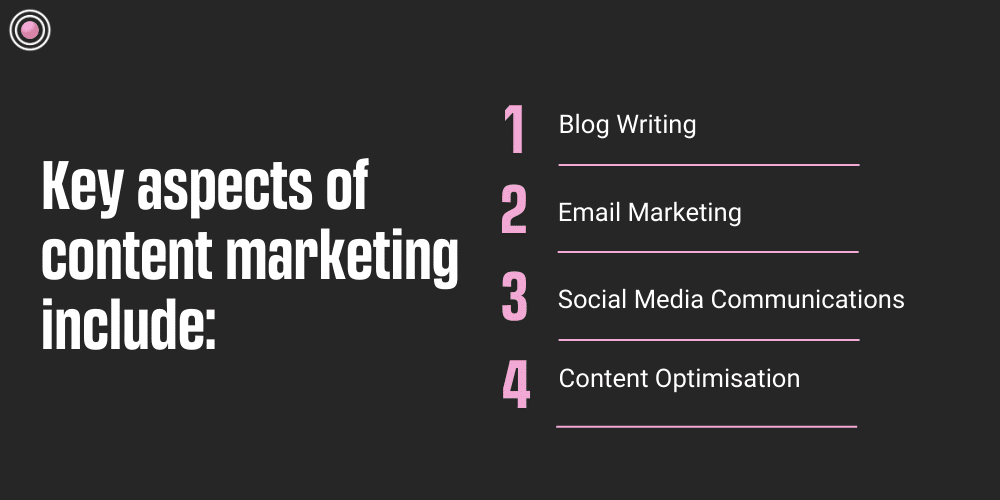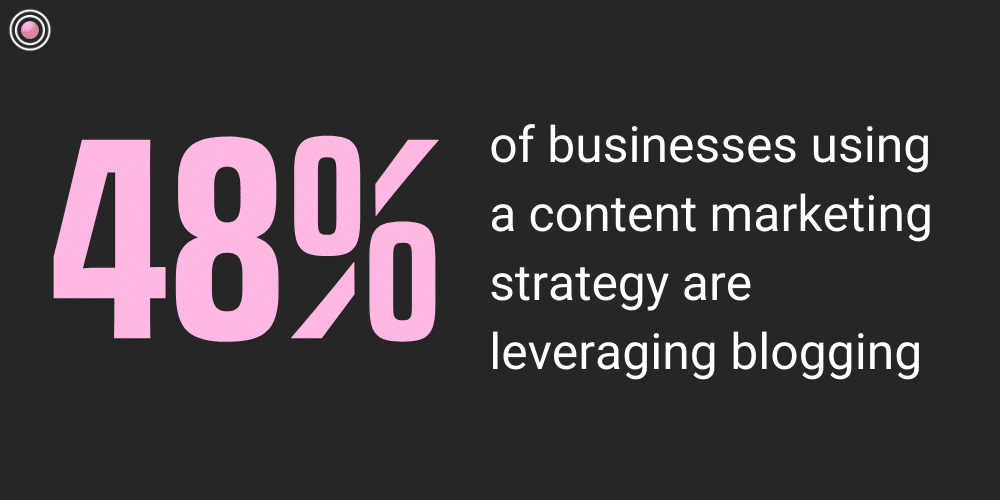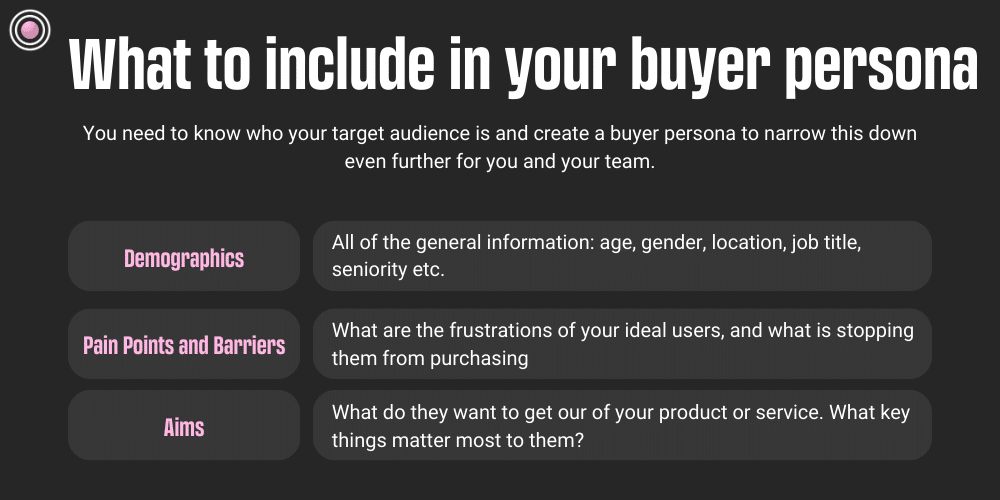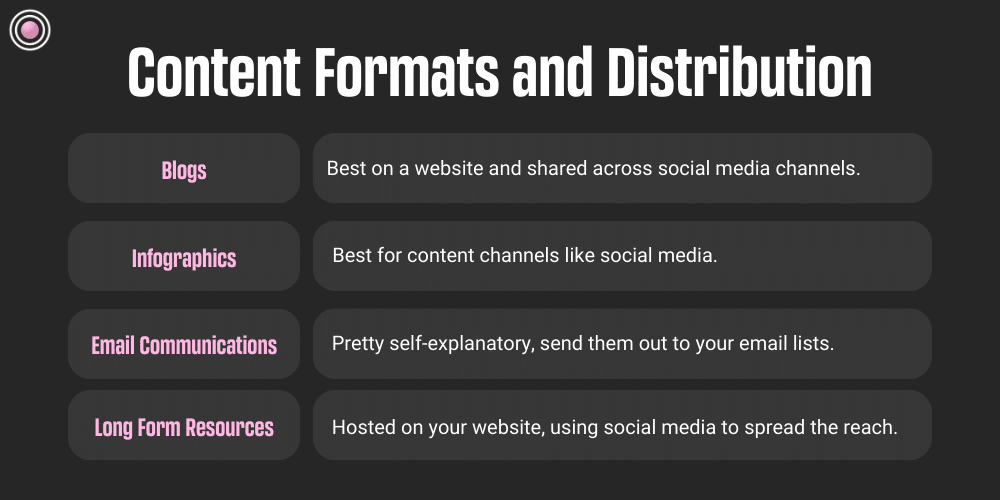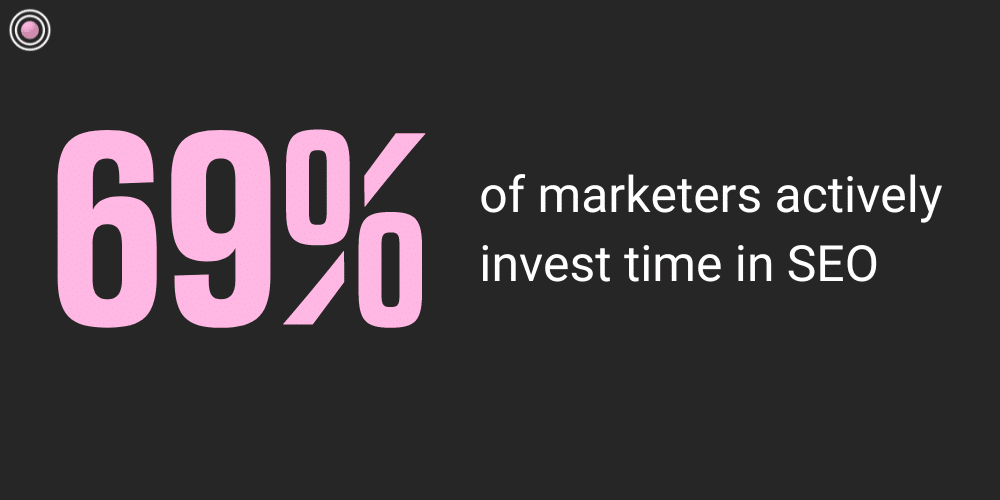
-
ROAR
- 8 Min Read
- Blog, HubSpot
Maximise Your HubSpot Content Marketing Strategy
Is your business looking to adopt a new content marketing strategy designed to take your business to new heights? We recommend a strong, audience-focused HubSpot content marketing strategy to maximise your online potential.
Digital marketing is ever-changing; staying ahead of the curve and competition is critical to survive. HubSpot is an industry-recognised digital platform, an all-around CRM (customer relationship management) platform. It allows businesses like yours to curate a comprehensive digital marketing strategy, enabling them to reach their specific goals.
If you want to make the most out of your HubSpot as one of your content marketing tools, it’s crucial to understand everything you can regarding content marketing strategy. This article includes a deep dive into content marketing and utilising HubSpot to maximise your online performance.
What is a Content Marketing Strategy, and Why is it Important?
A content marketing strategy encompasses all of your communications and output targeted at reaching your audience. It aims to attract, engage, and retain an audience through content that interests, engages and entertains them – building on the relationships between businesses and consumers.
Fact: 82% of marketers actively use content marketing.
Key aspects of content marketing include:
- Blog Writing
- Email Marketing
- Social Media Communications
- Content Optimisation
A beginner on your HubSpot journey? See our recent blog, ‘How to get started with HubSpot Marketing’.
How Can HubSpot Help With Developing a Content Marketing Strategy?
HubSpot offers all of the tools available to create a killer content marketing strategy. But, its all about how you use these tools to really succeed.
One of the most attractive aspects of HubSpot as a content marketing platform is its focus on inbound marketing. Instead of creating pushy communications that don’t resonate with an audience, HubSpot can help you to attract prospects actively searching for solutions to the business problems that your company offers.
HubSpot’s features are vast, and they support key components of content marketing strategy.
Their blog writing tool, navigated through Marketing > Website > Blog will allow you to generate blog articles through ideas, external blog posts and Google Docs.
After you have a blog, HubSpot supports content marketers on the optimisation journey through SEO and content optimisation tools designed to improve your content ranking on search engines. Additional features include social media sharing, article publishing and customisable page attributes like URL slug, meta description, and language.
Blogging is a widely popular marketing strategy, with 48% of companies that use a content marketing strategy leveraging blogging.
HubSpot boasts a widely recognised and impressive email marketing area of its platform, designed to improve and streamline marketing communications.
Snippets allow businesses to speed up their email marketing process, and email marketing templates offer organisations the creativity and flexibility to create emails their audience will love.
HubSpot is not a social media marketing platform – there, we said it. However, it can offer your support with your social media communications. Through blogs, HubSpot can share your new content on our social media channels instantly. HubSpot also allows for monitoring social mentions and analytical reporting.
All of the above should be a part of your content marketing strategy, targeting your audience with relevant, engaging and informative content and building up your relationship.
What Are Some Best Practices for Implementing a HubSpot Content Marketing Strategy?
When it comes to implementing, managing and evaluating a HubSpot content marketing strategy, there are a few things you should take care of beforehand.
- Determine Your Company Goals
Content marketing can contribute to various business goals and aims, but what exactly are you looking to achieve? Are you looking to increase website traffic? Generate more leads and sales? Increase brand awareness and authority?
Once you have decided on your marketing goals, it’s important to set some critical metrics to measure your performance.
- Determine Your Audience
Any business strategy is entirely redundant without an audience to target. Without an audience, who is opening your emails? Reading your blogs? Linking your social media posts?
A good understanding of your audience is critical to content marketing as it allows you to create relevant, meaningful content that speaks to your audience. Once you have an idea of who your target audience is, we suggest creating a buyer persona. These include in-depth customer research into age, demographics, location, income, etc. This will help you create for an audience by allowing you insight into your personas, pastimes, pain points and motivations.
- Run a Content Audit
If you are a business that has previously produced some content, audit it. A content audit is the process of evaluating all of the past content that you have put out. Consider the interaction, traffic, and engagement of each piece of content received or generated. This will provide details about what content works well and what your audience enjoys seeing and engaging with.
- Determine What Content You Will Create
No, you have your audience set in stone it is time to figure out what content you will create.
Will you be focussing on blog posts? Will you be sending out email communications? Posting infographics and visuals on social media? Creating long-form resources? Or a mixture of both.
Determine the Content Formats and Channels
The format of your content can significantly affect how your content is distributed and the content channels chosen to focus on. What works for email content won’t carbon copy work on social media and vice versa. Take time to understand each platform and type of content you want to create and best assess where this content will fit.
Here are some types of content formats and where they’re best distributed:
- Blogs: best on a website and shared on social media.
- Infographics: best used on content channels like social media.
- Email communications: these are self-explanatory.
- Long-form resources: best hosted on a website, using social media to share them.
When Will I Distribute this Content?
Knowing when your content will be distributed is essential to any content marketing campaign. This helps you keep track of all communications. HubSpot offers a complimentary handy, downloadable content management calendar to help with this.
Are you getting excited at the prospect of implementing HubSpot into your business? Look at our recent blog, ‘How to Implement HubSpot into Your Business’.
What are Some Common Challenges in Implementing a Content Marketing Strategy, and how can HubSpot help Overcome them?
For many reasons, implementing a HubSpot content marketing strategy can be challenging as a business owner or marketer.
A common challenge you will face is creating consistent, high-quality content because good content requires creativity, flair, time and effort. Another challenge in creating content is the ability to attract and retain the audience that you want.
A significant challenge for marketers is measuring the ROI (return on investment) from your content marketing efforts.
This is precisely where HubSpot comes in, offering your organisation the tools and resources to obliterate these challenges and support your business on its way to content marketing success.
Regarding creating consistent, high-quality content, HubSpot offers creation tools such as blog templates, AI writers, topic suggestions, and optimisation tools. These tools can help you discover your brand voice and put this into relevant topics for your audience, creating compelling content that will interest your audience.
The HubSpot marketing hub offers an analytics and reporting dashboard for your business to track and measure the success of your content marketing campaigns. This dashboard gives insights into areas your campaign should improve and understand what is performing well. You are then free to investigate this data and develop a strategy to improve.
How can HubSpot’s analytics and reporting tools enhance my content marketing strategy?
Marketing in the modern age is nothing without accurate and effective analytics and reporting – HubSpot will offer you just that.
HubSpot is well integrated, with an impressive suite of tools designed to offer tracking and analytics that enable you to analyse your marketing efforts in one place, investigating consumer behaviour and website performance.
Here are a few ways that HubSpot analytics and reporting tools can improve your HubSpot content marketing strategy:
- Accurate Tracking of Website Traffic
Website traffic is key to understanding how your audience finds and navigates your website. It can provide valuable insight into which pages perform well and where your audience engages the most. This can guide you on how to improve your content and user experience in the future.
HubSpot’s analytics feature allows you to access all your analytics and tracking in one place.
- Analyse Email Performance
Email marketing is one of the most attractive features of HubSpot, and with it comes an in-depth analysis of email marketing and performance. From open rates, click-through rates and information on how your audience engages with your email content. This information allows businesses like yours to refine their email marketing strategy and discover what your audience is most likely to engage with.
- See Social Media Impact
Although HubSpot is not the go-to social media marketing tool, it offers features to evaluate social media performance. Pulling from your integrated social media accounts, HubSpot provides insight into your social posts, like your engagement, likes, shares and comments, which allows you to
- Assess Blog Strategy Performance
HubSpot offers marketers basic yet valuable insight into blog performance. This is through showcasing metrics like page views, average time spent on the webpage and click-through rates.
- Evaluate Customer Journey
HubSpot is, first and foremost, a CRM (customer relationship management) platform designed to streamline the customer journey for your audience. HubSpot provides deep insight into how established and potential customers interact with your brand online across various touchpoints like your website, specific pages, social media, etc. Use this information to note any drop-offs or irregularities in customer behaviour and curate a strategy to improve.
What are some tips for optimising SEO within a HubSpot content marketing strategy?
SEO (search engine optimisation) is the process of optimising content and webpages to rank on search engines for key search terms your audience uses. HubSpot is a platform that supports blog writing ideas generation.
Research has shown that 69% of marketers actively invest time in SEO, so let’s see how you can leverage SEO into your content marketing strategy.
Here are some top tips for optimising HubSpot blogs for SEO:
- Keyword Research:
Although HubSpot has no keyword research tool built in, it doesn’t mean you can simply ignore it. Keyword research is critical to understanding the search terms that your audience is using online. These can then be moulded into ideas and topics from HubSpot to create engaging, helpful content that your audience is already searching for.
These keywords should be used across your content/webpage in the H1, H2, the introduction, and across the body text – but ensure you avoid keyword stuffing.
Doing so will help your business increase the search engine rankings of your content.
- Quality, Relevant Content:
Our next tip is to create valuable content that is relevant and holds quality. Research what questions your audience is searching through ‘people also ask’ on Google search engines or ask your audience on social media channels. These questions should be covered in your content and regularly updated to give your audience value. Consistent content creation is valuable towards building on your SEO efforts, genuinely talking to your audience, and developing a lasting relationship with them.
- Optimise Meta Titles and Descriptions:
The title of your content and its meta description should include the focus keyword of your piece of content. This helps Google and other search engines understand your website and accurately rank it. It also is visible to search engine users, guiding them on your piece.
- Include Semantically Related Keywords:
Semantically related keywords and keywords that are connected or relevant to your focus keyword of choice. These keywords provide Google and other search engines with extensive detail about your blog content and what it covers, allowing them to rank your content more effectively.
Industry legends Ahrefs put together an in-depth content optimisation guide to help you become a pro!
Key Takeaways:
Your content marketing potential is enormous, and your marketing team should be prioritising content ideas, blog post ideas and overall, creating a content plan.
Creating helpful, engaging and impactful content is critical; research your audience and write directly for them.
Contact ROAR today and discover how our HubSpot Management services can help your business grow online.

